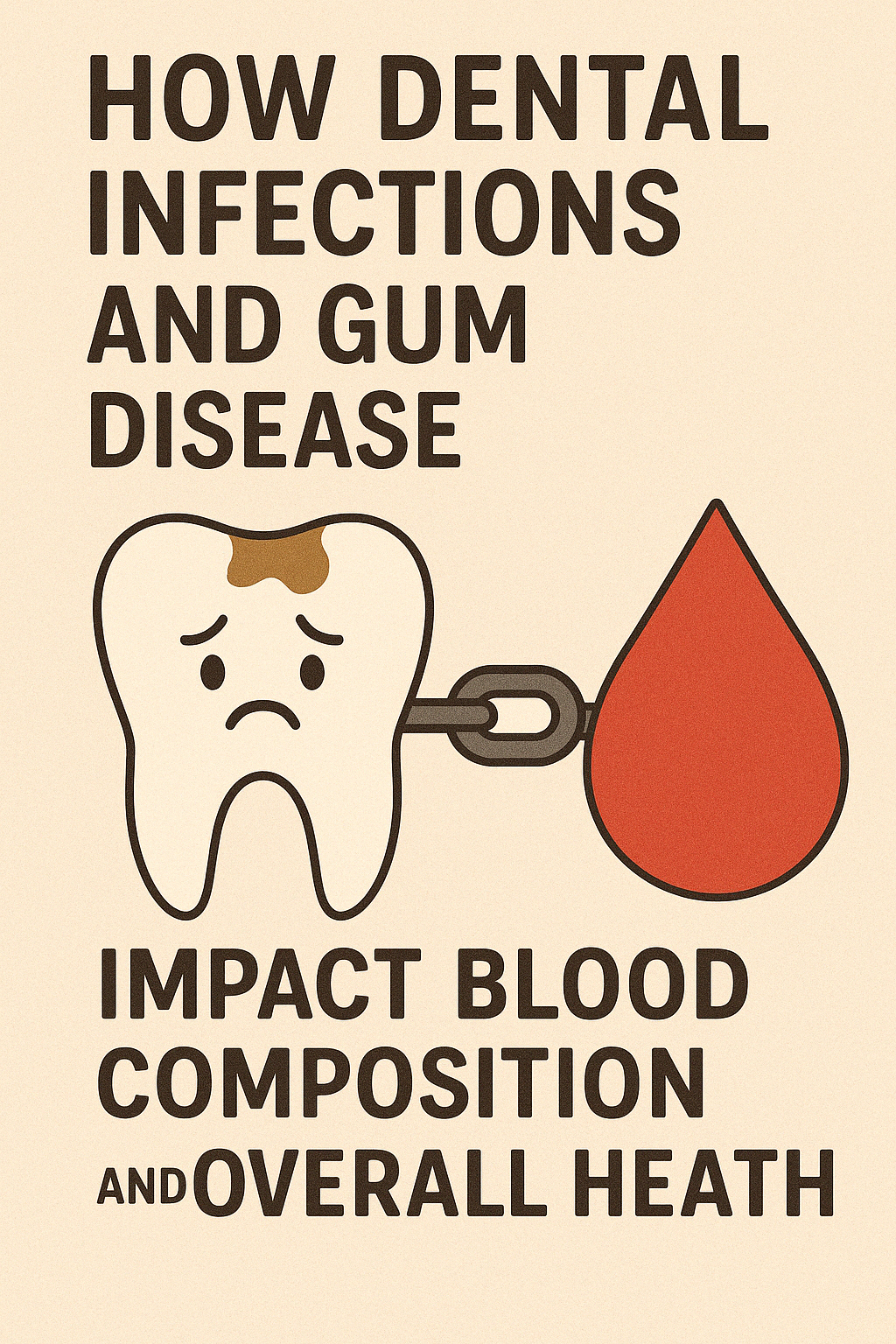Gum disease and dental infections affect the whole body, hence they are more than just problems of oral health. Renowned expert in this subject, Dr. Weston Price investigated closely to find how tooth infections affect blood composition. His results indicated startling variations in blood parameters, suggesting that general health is in direct line with oral condition. The most striking result of Dr. Price’s investigation was the appreciable variations in white blood cell counts. White blood cells called lymphocytes raised in humans by a significant margin and by 58 percent in rabbits. Another type of white blood cells, polymorphonuclear leukocytes, dropped to 33 percent below normal levels in both people and animals. These developments imply that oral infections can seriously interfere with the immunological reaction of the body.
Crucially for oxygen delivery in the blood, hemoglobin levels stayed somewhat constant throughout Dr. Price’s research. More concerning, though, was the regular incidence of hemophilia—a disorder marked by a propensity to bleed too much—in rabbits afflicted with tooth infections. This implies that major blood clotting problems can result from tooth infections. Given higher sugar levels found in the blood of infected people, dental infections also seem to influence blood sugar levels. Furthermore noted were variations in calcium levels in the blood; some rabbits displayed more ionic calcium while most suffered a drop. Bone health and general metabolic activity may suffer greatly from these developments.
Dental infections can cause a range of pathologic disorders, including nitrogen retention and higher uric acid levels that might aggravate acidosis. The disorder known as acidosis results from a disturbance of the pH balance in the body, so producing a more acidic surroundings. Many different body processes may suffer as a result. Moreover, weight loss is a typical sign of oral diseases seen in animals as well as humans; some of them show extreme emaciation. According to Dr. Price’s studies, the toxins of the bacteria itself inflict major damage as well. In tests when rabbits were injected with filtered solutions of crushed pyorrhetic teeth—teeth impacted by gum disease—weight loss and other symptoms were noted even in the absence of live bacteria. This emphasizes how important bacterial toxins are in generating problems with general health.
The degree of oral infections directly linked to the degree of weight loss. In investigations by Dr. Price, rabbits implanted with infected teeth or injected with contaminated materials routinely lost weight. The weight loss noted increases with increasing degree of illness. This emphasizes the need of treating oral infections right once in order to avoid major medical problems. Dr. Price recorded multiple case studies showing notable weight loss among individuals suffering from extreme tooth diseases. One well-known case concerned a woman whose oral problems caused her weight to plummet from 130 pounds to 72 pounds. Her weight returned to 111 pounds soon after the diseased teeth were taken out. Once oral infections are addressed, this example shows the possibility for recovery.
According to the studies carried out by Dr. Weston Price, general well-being and dental health are absolutely connected. Significant changes in blood composition brought about by dental infections and gum disease can cause several pathologic disorders and extreme weight loss. Knowing these relationships emphasizes the need of keeping good dental health to avoid problems related to general health. Essential stages in maintaining general health include frequent dental visits and quick treatment of infections. The results of Dr. Price underline the need of more investigation on the systematic consequences of dental infections and the creation of successful treatments to minimize their effects. Early oral health care helps people prevent many of the major consequences linked with dental infections and enhances their general quality of life.
The work of Dr. Price emphasizes especially the need of a comprehensive approach to healthcare. Dental health has to be seen as a whole component of a person’s general health rather than as separate entity. Knowing the possible systemic consequences of oral infections, healthcare providers should cooperate with dental experts to guarantee complete treatment for their patients. This combined approach can help find and fix underlying dental problems possibly causing more general health difficulties. Healthcare professionals can better assist their patients in reaching ideal well-being by helping them to see the link between dental health and systemic health.
Finally, the studies of tooth infections and gum disease on blood composition and general health conducted by Dr. Weston Price are concerning and instructive. The results highlight the vital need of people giving their dental health first priority within a more comprehensive health plan. Essential first measures in preventing and controlling the systemic consequences of oral infections are regular dental check-ups, quick treatment of infections, and a whole approach to healthcare. These steps help people greatly lower their risk of major medical issues and enhance their general quality of life. Work of Dr. Price reminds us that general health and well-being depend fundamentally on oral health.




